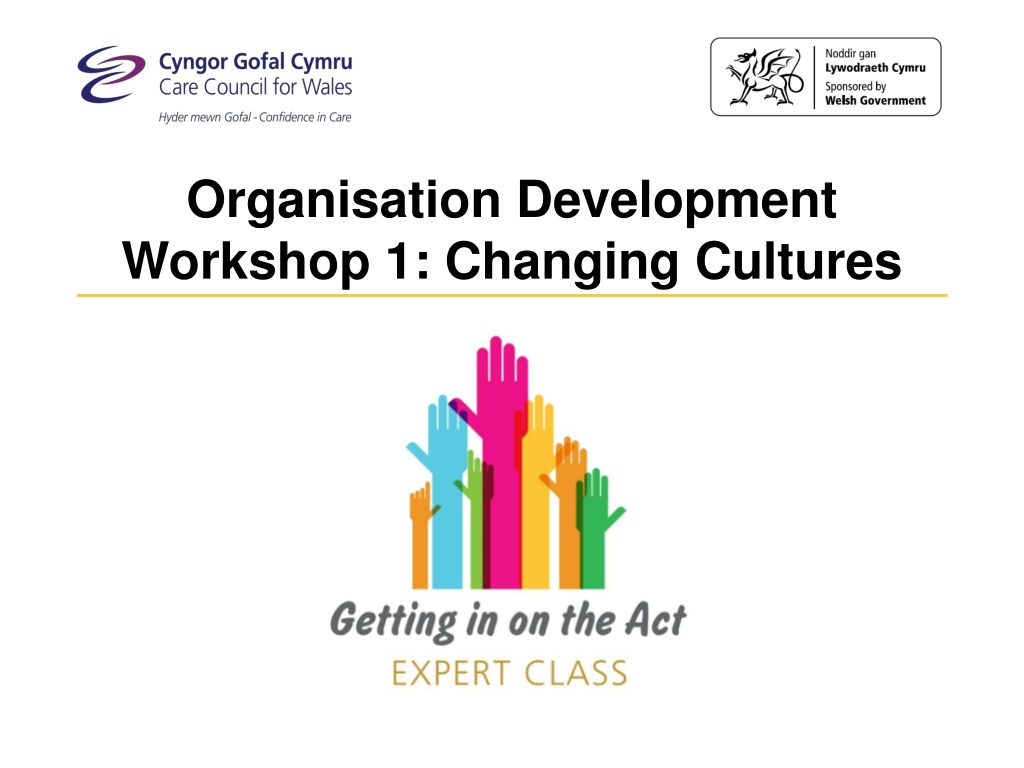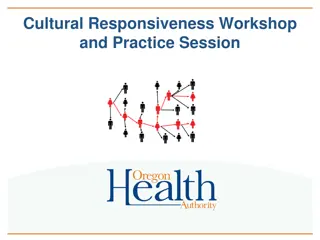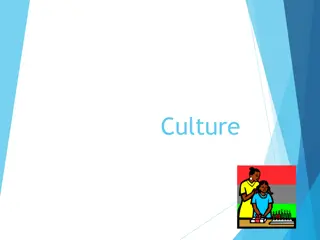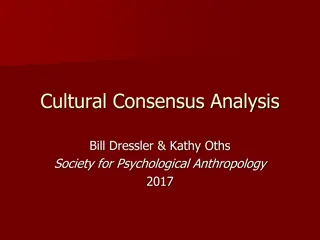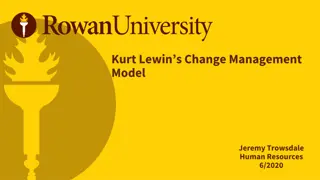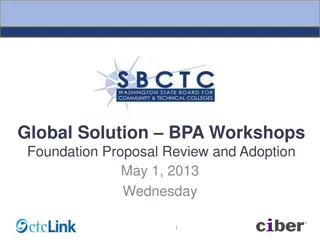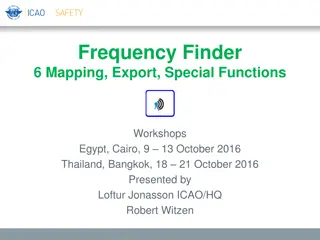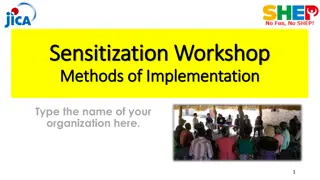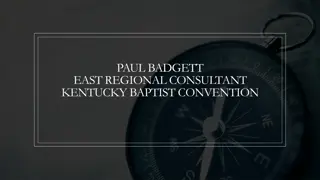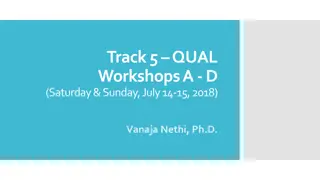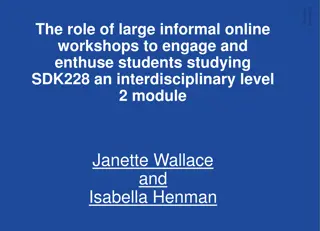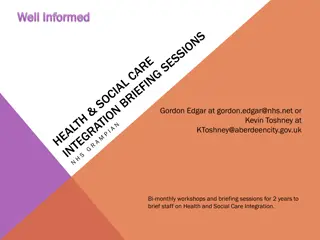Exploring Cultural Change in Management Workshops
This workshop series focuses on implementing organizational changes by exploring cultural shifts in the workplace. Participants will delve into articulating, planning, and taking action towards effective change management. The sessions aim to enhance understanding of local implementation implications and empower managers to drive change forward.
- Cultural Change
- Management Workshops
- Organizational Development
- Implementation Strategies
- Change Management
Download Presentation

Please find below an Image/Link to download the presentation.
The content on the website is provided AS IS for your information and personal use only. It may not be sold, licensed, or shared on other websites without obtaining consent from the author. Download presentation by click this link. If you encounter any issues during the download, it is possible that the publisher has removed the file from their server.
E N D
Presentation Transcript
Organisation Development Workshop 1: Changing Cultures
home_icon An opportunity for managers Two linked workshops exploring what it means to implement the Act locally Each workshop has a particular focus: Workshop 1: Changing cultures Workshop 2: Measuring performance Expectation that participants will do some preparatory thinking and a short exercise as the basis for activities during the workshop Expectation that participants will develop their own action plans at the end of each workshop. 1
home_icon Aims and learning outcomes This first workshop will focus on the cultural changes needed to enable the implementation of the Act, and how you articulate and plan for the changes relevant to your area of work By the end of the workshop you will: Have a clearer understanding of the implications of implementing the Act locally Be able to describe what this will look like locally Be able to articulate what changes and actions will be needed to deliver this effectively Be clear about what you need to do next in taking this change forward 2
home_icon Our approach Assumes you bring an awareness of the contents of the Act, and its implications for you locally Provides an opportunity for you to reflect on what this means for you in your role as a manager Gives you space to discuss the opportunities and challenges for cultural change locally Enables you to plan next steps and for the longer term 3
home_icon Agenda Introduction What needs to be different and how do we describe it? Who do we need to work with? What do we need to do to deliver the change? Planning next steps 4
home_icon What makes up our culture? Values Policies Traditions Culture Beliefs Interactions Attitudes Behaviours 5
home_icon What needs to be different? Collaboration Early Well-being intervention People Co- Prevention production Partnership 6
home_icon Example of changes to culture and practice Co-production and collaboration What matters to the person Less risk averse Professional judgement Strengths-based approach Undertake proportionate assessments Outcome-orientated Community responses 7
home_icon Example of changes to culture and practice Collaboration doing with rather than doing for Meaningful participation of children and families Active listening and communication with children Person-centred and -led rather than service-led Co-ordinated assessments, overarching care and support plans Strengths, capacity, support of family and friends Focus on personal outcomes and goals Aspirations and achievements 8
home_icon What does change look like for you locally? In pairs: Describe to your partner the culture change you identified in your pre-workshop exercise Discuss: What do you notice about the type of changes needed? What do you notice about who needs to change? 9
home_icon Articulating our vision: what are we aiming for? 10
home_icon Who do we need to work with? 11
home_icon So what is the task? How will you deliver the vision you have described? What approaches can you take? 12
home_icon Understanding the issues 13
home_icon Building professional commitment Bottom of in-tray Pressure for change Capacity for change Anxiety and frustration Vision and benefits Actionable first steps Haphazard efforts and false starts A fast start that fizzles out 14
home_icon Building personal commitment Poor understanding and no buy-in Clear and simple Energy, enthusiasm and hope Inertia to change and slow start Personal goals Personal style Bumpy ride and constant challenge Little personal commitment 15
home_icon Styles of leadership Supporting Coaching Person is well experienced but lacks motivation. Needs high support Person has more experience but is taking on more demanding work and so feels less confident Supportive behaviour Delegating Directing Person has all the technical and people skills needed, is experienced and highly motivated. Can be left happily to get on with it The person has little experience of the task but high enthusiasm and confidence Directive behaviour 16
home_icon Is it all about them or me .? 17
home_icon Consider: Direct actions, such as: changing supervision approaches with staff, arranging different activities with providers, providing information and training Indirect actions, such as: modelling required behaviours, influencing leaders, rewarding success, providing space to learn from mistakes For example: Are there people who would be natural champions of the change? Are there events taking place at which your message can be heard and supported? Will you need to change your own approaches and behaviours? How will you tackle resistance? 18
home_icon Planning for change How will you deliver the vision you have described? What approaches can you take? 19
home_icon Planning ahead Each group to present headlines of action plans with a brief rationale for taking the approach they have agreed Feedback from whole group: What ideas did they find most useful for them locally What approaches have they tried themselves and what learning could they offer others to make sure they work 20
home_icon Planning next steps Revisiting original pre-workshop exercise: What do you need to do as a priority action to take the cultural change forward? What do you see as the main opportunity locally for moving on with the implementation of the Act? 21
home_icon Moving on Evaluation sheet Plans for second workshop Measuring Progress Date and other arrangements Reminder about the pre-workshop exercise 22
